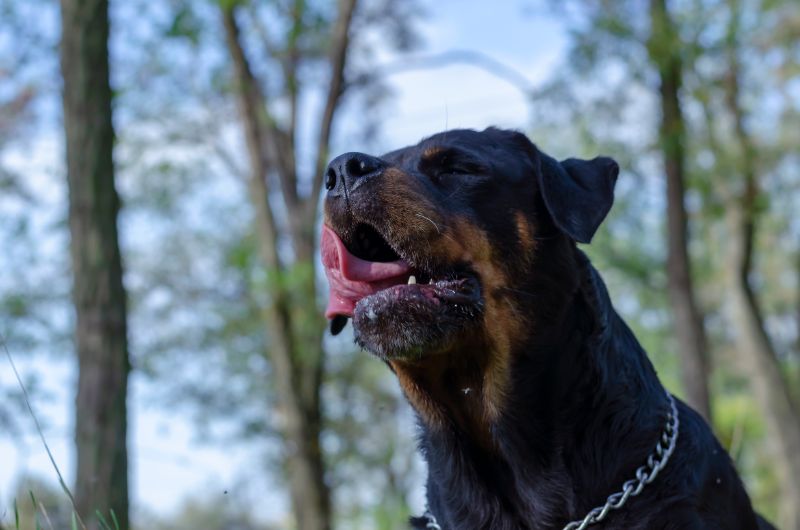What the Heck Is a Reverse Sneeze?
Certain dog behaviors can vacillate between alarming and confounding, and it’s not always clear when dog owners need to act. Sometimes, behaviors are temporary and resolve quickly, like a sudden upset tummy after eating something questionable. Other events that affect dogs can be more worrisome, especially if symptoms persist.
A reverse sneeze, or paroxysmal respiration, is one such episode that can be equally frightening and confusing. But what exactly are we talking about?
An Emergency Or…?
If you’ve never heard a reverse sneeze, imagine your dog making repetitive wheezing or honking noises. Nothing seems to provoke this process, and so it seems like something that should be immediately addressed.
While some dogs will never experience a reverse sneeze, it is a relatively common occurrence for many pups regardless of breed, age or lifestyle. In other words, rushing them to an emergency veterinary hospital may not be necessary if you can wait it out.
A Closer Look
Typically caused by an irritant in the nasal passages, a regular sneeze forces air out through the nose. A reverse sneeze, as the name implies, happens when air is rapidly inhaled through the nose. Standard reverse sneeze posture involves head and neck extension, standing still, and producing honking, wheezing or snorting sounds.
Identifying Irritants
Dust, pollen, smoke, odor, or other irritants can lead to sudden bouts of reverse sneezing. The exact origin is unknown, but can sometimes be explained by foxtails or other foreign bodies stuck in the airways. Allergies, dust mites, tumors or masses can lead to increased respiration challenges, including reverse sneezing. If episodes of perverse sneezing suddenly rise or don’t resolve on their own, we recommend that they be examined.
Waiting For It To Stop
We know that it can be dreadful to stand idly by during a dog’s perverse sneeze. It seems like they need help – and fast. Because the process can take up to a full minute, but not less than several long seconds, it seems like they may be at risk of choking or hyperventilating. However, once a dog fully exhales through the nose the reverse sneeze ceases on its own.
It’s Going to Be Okay
Dog owners may find that stroking their dog’s throat or offering a drink of water can interrupt an extended reverse sneeze. They may act like nothing ever happened afterwards.
Again, if episodes increase in frequency or severity it’s best to have them checked out.
The Reverse Sneeze and Other Conditions
Some respiratory illnesses can cause similar symptoms. To limit spreading of upper respiratory infections to other animals or stop the development of chronic conditions, seek help as soon as possible.
Barring the sounds of a reverse sneeze, any uncharacteristic changes to a pet’s respiration should not be taken lightly. Asthma, collapsed trachea, heart disease, brachycephalic syndrome (affecting short-nosed dogs) may cause breathing problems.
The Fine Line
Most times, a reverse sneeze is harmless. However, protracted episodes and any changes in canine behavior deserve quick action and attention.
As always, our staff at Volunteer Veterinary Hospital is happy to help you with questions or concerns. It’s always better to be safe than sorry!


